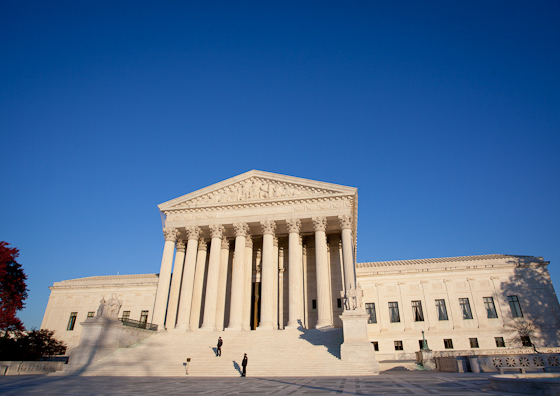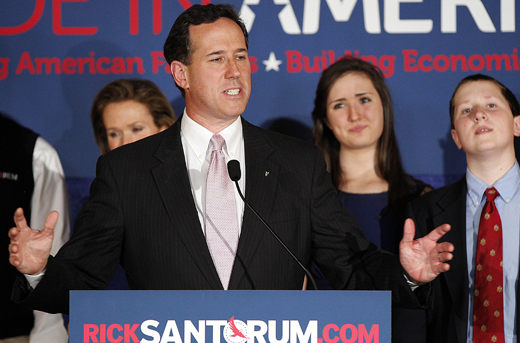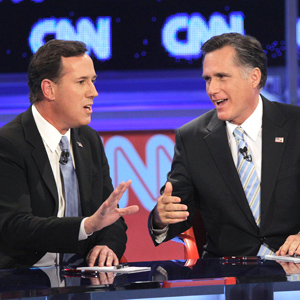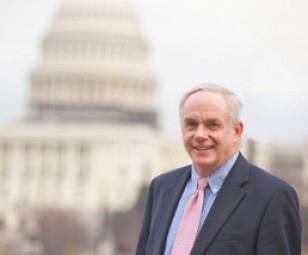Shifts Focus to Obama
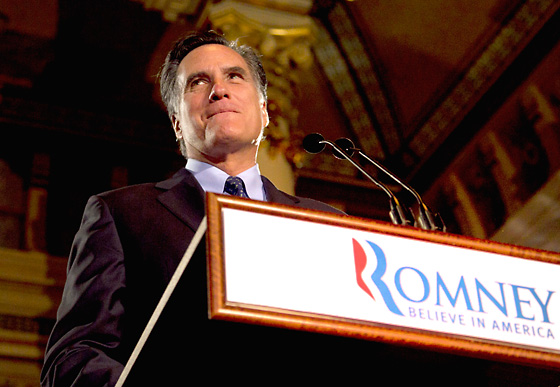
Mitt Romney closes in on the Republican Party nomination after three primary wins this week. Photo: AP
Mitt Romney’s trifectas of victories in Maryland, the District of Columbia and Wisconsin have solidified the notion that he is closing in on the Republican Party presidential nomination and appears unstoppable at this point.
The only question about the latest round of primaries Tuesday was whether Rick Santorum could pull off an upset in Wisconsin and raise fresh doubts about Romney and his struggles to appeal to the conservative Republican base. Santorum failed and increasingly this once hard-fought primary campaign is starting to look like one of those balloons with the air oozing out of it.
Santorum promises to soldier on, at least until the April 24th primary in his home state of Pennsylvania. But the risks of staying in are high for him if he has an eye on the 2016 campaign because an embarrassing loss to Romney in his home state would be an unnecessary self-inflicted wound.
The last time Santorum was on the ballot in Pennsylvania was six years ago and he got trounced by Democratic Bob Casey, Jr. by double-digits. The pressure is likely to increase in the coming days from Republican leaders for him to exit the race soon and get behind Romney as the party’s inevitable nominee and allow everyone to focus on the coming battle against President Obama in November.

Rick Santorum now counting on his home state of Pennsylvania to stay in the Republican race. Photo: AP
Each day, it seems, Romney is shifting his attention more and more to the general election. Addressing a newspaper group this week in Washington, Romney said the November election will present voters with what he called “a defining decision.”
He went on to say that the choice will not be about party or personality, but about principle. The previous day, President Obama offered a similar analysis in a speech to a group of AP editors and publishers when he said he couldn’t remember a time when the competing visions offered by the two main parties were “so unambiguously clear.”
So basically, it’s game on from now until November 6th. The American public will have to brace itself for another long, and most likely negative, election campaign that will play out over the next seven months.
Gingrich and Paul Hang in, but Why?
As for the other two Republican contenders, Newt Gingrich and Ron Paul, they have sort of reached the footnote stage in the race. Gingrich says he’ll carry on to the convention in Tampa, but is anyone paying attention? He and Romney have acknowledged having contact, so at some point we can expect a big endorsement announcement with plenty of flattery for the former House speaker.
As for Ron Paul, he has always charted his own course and one assumes he is banking on a speaking slot at the Tampa convention that would allow him to highlight his brand of libertarian conservatism during prime TV time.
Some are now speculating that Gingrich may want to have a major role in putting the Republican platform together at the convention in Tampa, but that process is usually controlled by the nominee-to-be and his staff, not a rival for the nomination.
Gingrich could be useful to Romney in the fall campaign, however, as someone who could fire up the Republican base in ways that Romney has generally failed to do. Gingrich still has a flair for rhetoric and a knack for being able to encapsulate conservative gripes and values. He also loves to get under the skin of what he likes to call the “liberal elites” and the “elite media.” So I would expect him to play a surrogate role of some kind during the campaign.
As for Ron Paul, I’m not so sure about the surrogate role. He just might fade into the background during the November campaign.
Paul will try to seize the moment during the Republican convention in Tampa. But for all the crowds he has drawn on the campaign trail this year, he still has little to show for it in terms of delegates and momentum.
Paul has been able to win over younger supporters during his campaign, but will that translate somehow into a youth movement for Romney? Not likely. Paul is more about Paul than helping the Republicans, and I would expect that to continue to play out after the convention in August as well.




